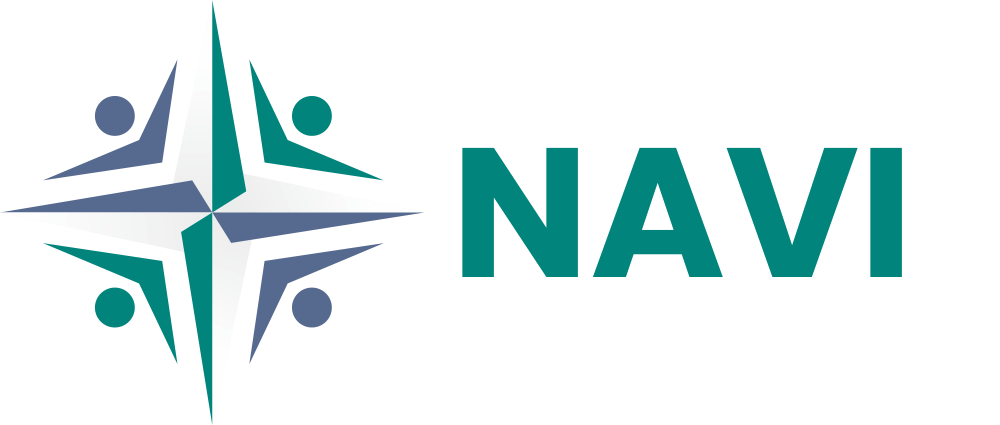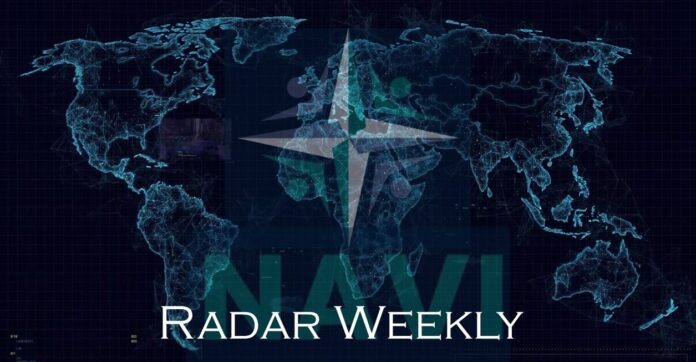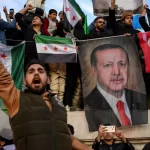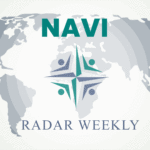As China prepares to invade Taiwan, US forces are about to combat-test a vital weapon| The Telegraph
David Axe | 24.03.2024

The main mission of the US Army flotilla now sailing toward Gaza is to build a floating pier that will help ships offload desperately-needed humanitarian aid. But the task force also serves a secondary purpose: it’s practice for a critical combat operation – one that could help US forces to roll back Chinese advances in the event of a war over Taiwan.
The Joint Logistics Over-the-Shore pier system, or JLOTS, is a Lego-like suite of floating metal piers and ramps that can connect virtually any ship to virtually any beach. While the Pentagon is sending five 273-foot US Army landing craft to begin building the pier, the final components will sail aboard the 951-foot transport ship Roy A Benavidez, which belongs to the US Navy-administered Ready Reserve Force.
Increasingly impatient with Israeli prime minister Benjamin Netanyahu, Biden is counting on the US Army’s logistics fleet not only to save Gazan lives, but also to signal his – and America’s – opposition to continuing Israeli aggression. As a bonus, the fleet will be practicing a unique military skill: the construction of a temporary port.
“This temporary pier would enable a massive increase in the amount of humanitarian assistance getting into Gaza every day,” Biden said.
It would be crass to think of the coming humanitarian JLOTS deployment primarily as practice for war. But it would also be naive to pretend American soldiers and sailors won’t benefit from building a pier from scratch in a war zone. Even if that war doesn’t directly involve US troops.
Those Americans just might be ordered to build the pier again in the waters around Taiwan, while Chinese missiles rain down. Read more…
Focus Point: Security and Defense Policy- Russia-Ukraine War
Russia’s interrogation tactics could fuel extremism, experts warn | Essanews
TMO | 26.03.2024

Marcin Faliński, a former Intelligence Agency officer, explained in an interview with WP. However, the same material could rally jihadists in the Caucasus, producing a starkly different outcome.
“Jihadist channels will likely circulate these images, sparking outrage among extremists in Muslim regions of Russia. This could also offer propaganda material for countries adversarial to Russia,” Faliński added.
Following the display of torture, ISIS issued a new threat against Russia, promising retaliatory attacks. Iranian media disseminated a poster cautioning Russian President Vladimir Putin of imminent attacks as a protest against the torture of its members. Read more…
Focus Point: Emerging Technologies & Data – Emerging Technology Standards
How Dresden Became Germany’s Chips City | Politico
Pieter Haeck | 26.03.2024

If Europe’s best manufacturing days are behind it, no one told Dresden.
The eastern German city and Saxon capital has become an industrial stronghold, with a world-class microchip manufacturing sector that is attracting investment from as far away as Taiwan.
Why Dresden? The northern part of the city, near its local airport, boasts a granite soil base — the perfect protection against vibrations that could hinder the sensitive production of chips.
Besides its geology, Dresden’s success is driven by the local government’s persistent support, the presence of seasoned industry veterans and cooperation between industry and researchers.
The question is whether that will be enough now that pandemic-era shortages have kicked off a global chips contest, which has prompted blocs such as the United States, China, the European Union, Japan and South Korea to pledge billions on new factories.
But as the global microchip race heats up, will it be able to maintain that status? Read more…
Focus Point: Social, Economic & Security- Social Studies
The Tyranny of Expectations| Foreign Affairs
Dominic Tierney | 25.03.2024

The global shift in perceptions is an example of the tyranny of expectations—or how assumptions about who will win a war can skew judgments about who prevails. Outside observers, both experts and laypeople alike, do not evaluate military results by simply tallying up the battlefield gains and losses. Instead, they compare these results to their expectations.
As a result, states can lose territory and still be deemed winners if they overperform. States can take land and be labeled losers if they underdeliver.
The resulting conclusions about the winners and losers, however skewed, can even rebound and shape the battlefield.
Ukraine, for example, lost territory during the initial weeks of Russia’s invasion. But Kyiv’s unexpectedly resolute defense earned it widespread Western assistance, which helped it liberate numerous cities in the following months. Read more…
Focus Point: Regional Security- Indo-Pacific
Chinas Military Trains Using Mock-Ups of Taiwan Buildingsm |Taiwan Plus
John Su and Jaime Ocon | 27.03.2024

More footage has emerged from China of soldiers using mock-ups of Taiwanese cities as a backdrop for military exercises. It’s raising questions about just how ready Taiwan is for urban warfare. Read more…
Focus Point: Emerging Technologies & Data- Artificial Intelligence
Artificial intelligence [What Think Tanks are thinking]| The European Parliament
European Parliament | Briefing | 27.03.2024

The Artificial Intelligence (AI) Act moved close to final adoption when the European Parliament voted in favor of the text on 13 March.
It will become law after the final endorsement of the Council of the European Union, making the Union the first major world power to adopt horizontal legislation governing AI.
The act defines the rules for using and selling artificial intelligence systems in the EU, and regulates general-purpose AI tools such as ChatGPT and AI-based biometric surveillance. It also requires much more transparency than up to now in high-risk AI systems and delineates unacceptable risks of AI.
As the #AIAct is about to start to be enforced, the European Parliament has issued a comprehensive note with links to recent #reports and #commentaries from major #thinktanks and other #research bodies #globally on #AI.
The note includes reports of The Brookings Institution, Carnegie Europe, Center for Data Innovation, Kiel Institute for the World Economy, Bruegel – Improving economic policy, Finnish Institute of International Affairs – FIIA, CEPS (Centre for European Policy Studies), and others. Read more…
Focus Point: Regional Security- NATO
Allies reaffirm commitment to strengthen Ukraine’s defences at NATO-Ukraine Council meeting |NATO
NATO | 28.03.2024

The NATO-Ukraine Council met on Thursday (28 March 2024) following recent Russian airstrikes on Ukraine. Allies strongly condemned the escalation in Russian air strikes and reaffirmed their commitment to further strengthen Ukraine’s defences.
The meeting was held at ambassadorial level and was convened at Ukraine’s request. Deputy Secretary General Mircea Geoana chaired the Council and Ukrainian Defence Minister Rustem Umerov joined via video conference. The Deputy Secretary General said: “Russia’s continued attacks against Ukraine’s civilians and critical infrastructure demonstrate an urgent need for our continued support.” Read more…
Focus Point: Regional Security- NATO
Chair of the NATO Military Committee visits Latvia on the 20th anniversary of its NATO membership | NATO
NATO | 28.03.2024

On 27-29 March 2024, the Chair of the NATO Military Committee, Admiral Rob Bauer, visited Latvia upon the invitation of the Chief of Defence, Lieutenant General Leonīds Kalniņš. While in Riga, Admiral Bauer met with the President, Minister of Defence and Minister of Foreign Affairs of Latvia, in order to discuss collective deterrence and defence and the implementation of the decisions taken at the Vilnius summit last year. Admiral Bauer also participated in public events to celebrate Latvia’s NATO 20 year-membership.
“NATO and national defence plans are more interconnected than ever before. NATO is stronger and readier than it has ever been,”
The meetings with Minister of Defence Andris Sprūds, Minister of Foreign Affairs, Krišjānis Kariņš and Chief of Defence Leonīds Kalniņš focused on collective defence and the strengthening of Latvia’s defence posture. “NATO and national defence plans are more interconnected than ever before. NATO is stronger and readier than it has ever been,” said Admiral Bauer. Read more…
Focus Point: Security and Defense Policy- Russia-Ukraine War
EU defence reforms won’t immediately help Ukraine: Former top NATO official Camille Grand |Talking Europe
Armen GEORGIAN | 29.03.2024

The EU’s proposed defence reforms are not going to make a difference to Ukraine in the short term, warns Camille Grand, NATO’s former assistant secretary general for defence investment.
Both the European Defence Industrial Strategy (EDIS) and the European Defence Industry Programme (EDIP) “are going to be very useful in the longer term, provided that the money comes in 2028, which is more or less the cycle that the EU is announcing”, Grand tells Talking Europe.
He talks about Ukraine’s ammunition shortage – a subject on which he put forward a 10-point plan at the European Council on Foreign Relations, where he is distinguished policy fellow. We also discuss how NATO has evolved since the start of the war, and the ways in which, according to Grand, NATO and the EU can – and should – work together more closely. Read more…
Thank you very much for reading.
The NAVI Research Institute is the research division of NATO Veterans Initiative - NAVI that provides a unique perspective to transatlantic leaders and societies on peace and security through the lens of NATO's founding principles of rule of law, democracy, human rights, and individual liberties. The NAVI Research Institute was officially established by the NAVI Board on July 16th, 2023.



